Prime Minister Joseph Muscat’s suggestion of having a four-term limit on the length that a Member of Parliament can serve in office would mean that over half of his current Cabinet of Ministers would have to make way.
Eight ministers - Evarist Bartolo, Joe Mizzi, Chris Cardona, Helena Dalli, Michael Farrugia, Carmelo Abela and Jose Herrera - have all exceeded four terms as an MP, while Gozo Minister Justyne Caruana is currently serving her fourth term in Parliament. They are joined by a further two parliamentary secretaries – Chris Agius and Roderick Galdes – and a backbencher, former minister Anton Refalo.
The idea would also affect nine members of the PN. MPs Mario Galea, Jason Azzopardi, Frederick Azzopardi, Carmelo Mifsud Bonnici and Edwin Vassallo have all exceeded four terms while David Agius, Robert Arrigo, Mario de Marco and Clyde Puli are on their fourth.
The Prime Minister first mentioned this idea earlier this month, when he told journalists that the idea of having a two-term limit for the role of Prime Minister and a four-term limit for the role of MP was one that should be seriously considered during discussions for the upcoming constitutional reform.
He admitted that the idea is a controversial one, but the reasoning behind it, Muscat explained, is to send the message that politicians are there to serve the country, and not to tie themselves to the seat of power.
It is a suggestion that would have a profound effect on the face of Maltese politics, and The Malta Independent dug deeper into Malta’s political history since the country’s independence to ascertain the extent to which such a reform would have had if it were introduced in 1964.
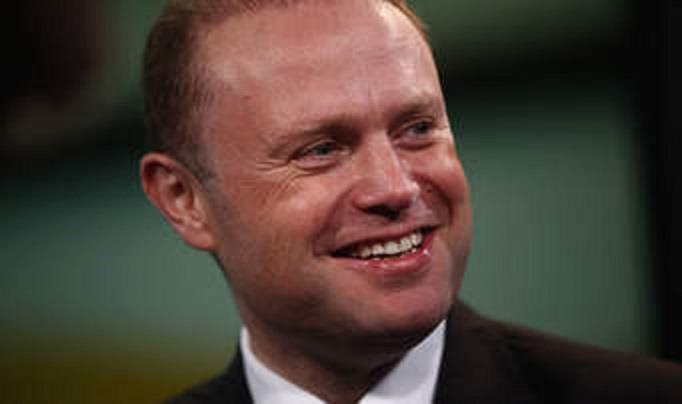
Who is in and who is out by Muscat’s yardstick
The need for reform in Malta’s Constitution has been recognised and accepted by members across the political (and non-political) spectrum. It is only natural that, since this reform process is underway, a number of differing ideas will start to rear their heads and enter the field of debate. One of the more controversial – as it was described by the proponent himself – ideas is that a term limit should be imposed on the role of Prime Minister and indeed on the role of Members of Parliament.
Prime Minister Joseph Muscat mentioned this idea earlier this month, when he told journalists that the idea of having a two-term limit for the role of Prime Minister and a four-term limit for the role of MP was one that should be seriously considered during discussions for the upcoming constitutional reform.
He admitted that the idea is a controversial one, but explained that the reasoning behind it is to send the message that politicians are there to serve the country, and not to tie themselves to the seat of power.
But what does this idea mean in the grand scheme of Maltese politics? The Malta Independent on Sunday has delved deep into Malta’s political history since the country acquired independence from the British in 1964, looking into the number of MPs who have served four terms or more in Parliament since then, whilst also looking at the current scenario in Parliament to see – quite simply – which MPs would be out of a seat if Muscat’s suggested reforms are implemented in the Constitution.
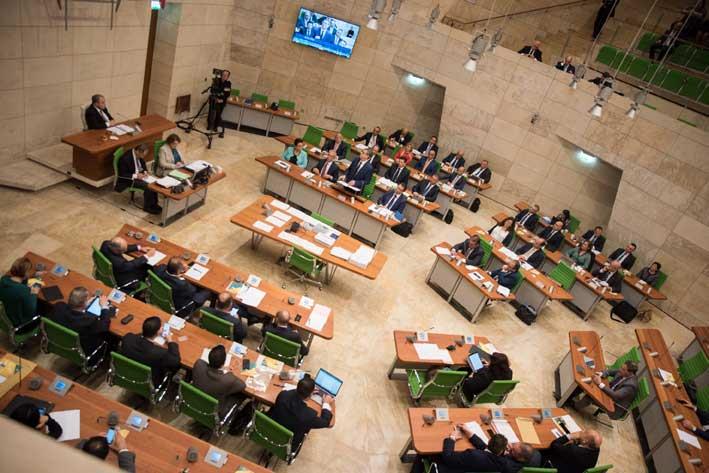
The current scenario: who is in and who is out?
Of the 67 MPS, there are currently 21 who are either currently serving their fourth term in Parliament or have already exceeded four terms. Of these, 12 are Labour MPs and nine are PN MPs. A fact which is definitely of note in this respect is that eight of those Labour MPs are, in fact, Ministers – therefore comprising over half of Joseph Muscat’s current Cabinet of 14 Ministers.
Energy Minister Joe Mizzi and MP Anton Refalo who, until 2017, was the Minister for Gozo, are the most experienced politicians on the Labour bench with this being their eighth term in office since they were first elected 32 years ago, in 1987. They are followed by Education Minister Evarist Bartolo and Home Affairs Minister Michael Farrugia who were both first elected in 1992 and are therefore currently serving their seventh term in office.
Economy Minister Chris Cardona, Foreign Affairs Minister Carmelo Abela, EU Affairs Minister Helena Dalli, Environment Minister Jose Herrera and Parliamentary Secretary Chris Agius are all in their sixth term, having first been elected in 1996, while Parliamentary Secretary Silvio Parnis was first elected two years later in 1998, meaning he is currently in his fifth term. Gozo Minister Justyne Caruana and Parliamentary Secretary Roderick Galdes are both on their fourth term, having been first elected in 2003, which means that if Muscat’s idea of term-limits does indeed come to fruition, they too would have to make way, come the next General Election.
The same can be said of nine members of the Opposition. Mario Galea is by far the most experienced member on the PN bench, having served seven consecutive terms. However, Jason Azzopardi, Frederick Azzopardi, Carmelo Mifsud Bonnici and Edwin Vassallo (who are all on their fifth term) and David Agius, Robert Arrigo, Mario De Marco, and Clyde Puli (who are all on their fourth) would all have to make way as well, should this reform be implemented.
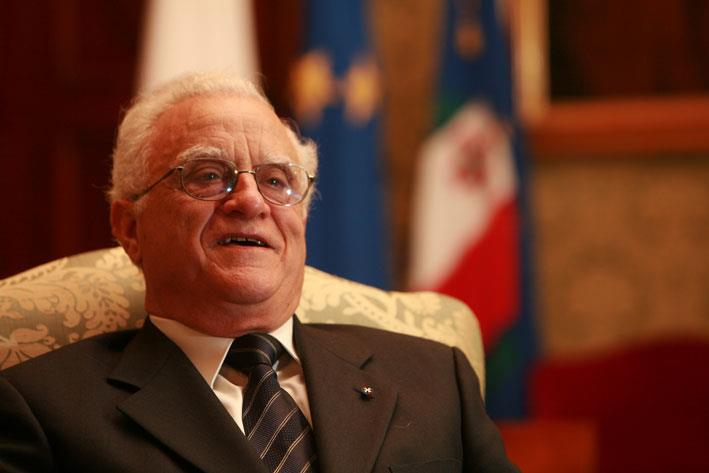
The historical view: how many politicians have reached or exceeded four terms in office?
The next step in considering such an idea is to look back historically. Put simply: how many politicians would have been affected, had Muscat’s idea for MP term limits been implemented as soon as Malta gained Independence?
The first post-Independence election was held in 1966 and since then there have been a further 11. In the intervening period, there are 48 politicians who have served more than four terms in Parliament: 23 from the Labour Party and 25 from the Nationalist Party.
Three political juggernauts won a seat in nine consecutive elections: Labour’s Joe Debono Grech and Karmenu Vella and Nationalist Party cult figure Eddie Fenech Adami (above). Both Debono Grech and Vella were first elected in 1976 and while Debono Grech retained his seat until the eve of the most recent general election in 2017, Vella relinquished his seat in 2014 to take up the role of European Commissioner for the Environment, Maritime Affairs and Fisheries. Meanwhile, Fenech Adami was first elected in 1966 and relinquished his seat in Parliament in 2004, after which he became Malta’s ninth President.
Apart from these, a further four politicians served into their eighth term (the PN’s Guido De Marco and the PL’s Leo Brincat, Anton Refalo and Joe Mizzi – the latter two still serving as MPs), 16 served into their seventh term, 14 into their sixth and another 17 into their fifth.
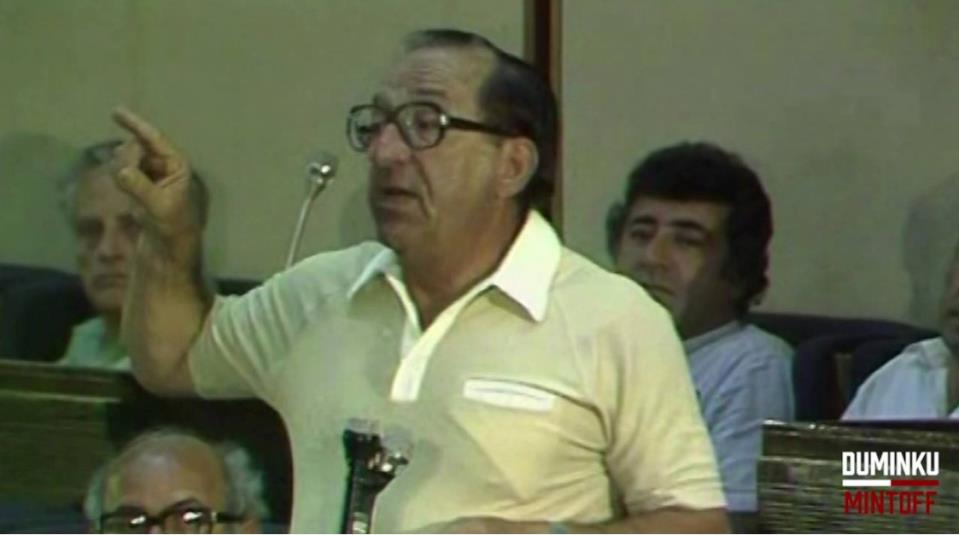
It should be noted that included in these numbers are those politicians who served terms prior to Independence but for the benefit of this study, only their terms after the 1966 elections are being taken into consideration. This excludes politicians such as George Borg Olivier, Anthony Buttigieg, George M. Camilleri and Daniel Piscopo, all of whom served three post-Independence terms in Parliament but, in reality, served longer if their time in politics prior to Independence is included. It does mean, however, that politicians who served more than four terms after Independence together with terms before Independence – such as Dom Mintoff (above), who was first elected to public office in 1945 and continued to serve another seven terms after 1964 – are taken into consideration in these statistics.
There are a further 35 politicians who, since 1966, have served a total of four consecutive terms, five of whom are currently serving their fourth term. For some of these politicians, the fact that they did not build on the number of terms served was not for a lack of trying: of the remaining 30, 11 stood for election after their fourth term but did not manage to retain their seats. That leaves a further 19 who decided to call it quits after four post-Independence terms, although this is not necessarily simply because they wanted to retire from politics. Labour MP Adrian Vassallo, for instance, did not contest the 2013 elections for a fifth term in Parliament after he was at odds with new Party Leader Joseph Muscat’s progressive agenda.
All in all, a number of Maltese political heavyweights have, over the years, served four terms or more. Nationalist heavyweights such as Eddie Fenech Adami (nine terms), Guido De Marco (eight), Giovanna Debono (seven), Louis Galea (seven), Ninu Zammit (seven), Francis Zammit Dimech (seven), Ugo Mifsud Bonnici (six) and Censu Tabone (five ) all exceeded the proposed four terms.
The same can be said for a number of Labour party historical heavyweights: Dom Mintoff (seven, post-Independence), Joe Debono Grech (9), Karmenu Vella (9), Leo Brincat (eight) George Vella (7), Charles Mangion (7), Wistin Abela (6), and Alfred Sant (6) are all similarly notable examples.
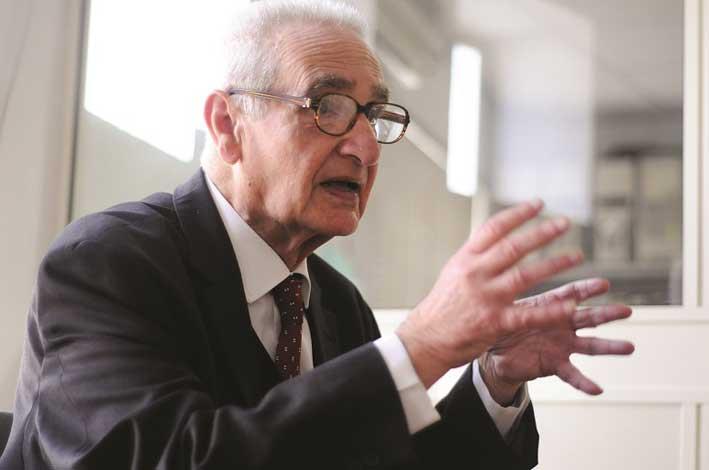
Since Independence, two Prime Ministers have served more than two terms
Another element of Muscat’s suggestions, along with a four-term limit for MPs, is that the Prime Minister should be subject to a maximum of two terms in office.
The only two Prime Ministers to exceed two terms in office after Malta achieved Independence are two opposing political cult figures: Dom Mintoff and Eddie Fenech Adami.
Mintoff’s Labour Party won the 1971 elections, making ‘Il-Perit’ – as he was known – Malta’s second Prime Minister since 1964. With Mintoff at the helm, Labour subsequently won the 1976 and 1981 elections. Mintoff however stepped down from the role of Prime Minister (and that of Labour Party leader) midway through his third term in office in 1984, handing over the reins to Karmenu Mifsud Bonnici (above).
The Nationalist Party, with Eddie Fenech Adami as leader, subsequently won the following general election, taking government in 1987 and did enough to secure another term in government in 1992. The Labour Party bounced back in 1996, but Alfred Sant’s government lasted only 22 months and, as a result, Eddie Fenech Adami was once again Prime Minister, come 1998. He served a full third term before leading the PN to another electoral victory in 2003 and then stepping down as Prime Minister and Party leader in 2004.
There are other Maltese Prime Ministers who have served two terms: George Borg Olivier and Lawrence Gonzi both spent two terms in office, while Joseph Muscat is also now on his second and – as he has said countless times – final term.
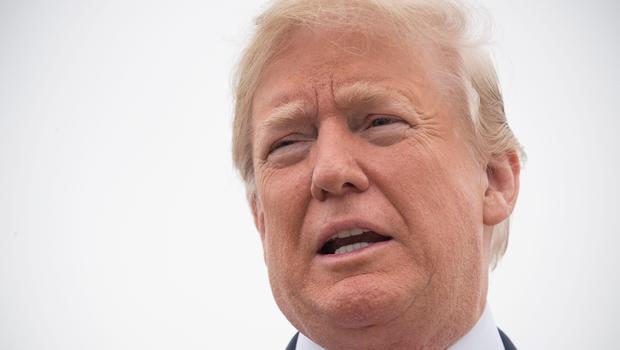
The international view: are any term-limits imposed in Europe?
Perhaps the most notable imposition of a term limit on a head of government is in the United States of America, where the President is limited to two four-year terms in office totalling eight years – although this can, in certain cases, rise to 10 years in office as per the 22nd Amendment of America’s Constitution.
However, when it comes to Europe, while many countries have term limits imposed for the Head of State – in the way that Malta has a two, five-year term limit for the Office of President – only one country has some form of term limit that could affect the head of government: Bosnia & Herzegovina.
In Bosnia & Herzegovina, the Prime Minister – formally known as Chairman of the Council of Ministers of Bosnia and Herzegovina – is nominated by a three-person Presidency and is then approved by the country’s House of Representatives. This Presidency is also responsible for the country’s foreign policy; representing the country in European and international organisations and tabling the annual Budget in Parliament as recommended by the country’s Council of Ministers.
The Presidency always consists of a Croat, a Serb and a Bosnian, who are chosen by election every four years. The Chair of the Presidency then rotates between the three every eight months. Individuals elected to the Presidency can serve no more than two consecutive terms, but there is no limit on the number of overall terms that can be served by an individual. In fact, Zeljko Komsic is currently in his third term of the Presidency, which is possible only because he took a four-year break from the position between 2014 and 2018, having served in it between 2006 and 2014.
Apart from this somewhat complex system, every other country in Europe uses the same system as Malta when it comes to the Head of Government and term limits in that none exist. In fact, as long as the Prime Minister can maintain support in the country’s respective Parliament, the term remains secure.
A reform that could change the face of Maltese politics
All in all, if Muscat’s proposal for term limits does indeed find its way into Malta’s next Constitution it will totally change the face of Maltese politics. Certainly, the most notable point to take from the Prime Minister’s suggestion is that it was made despite the fact that over half of his own Cabinet of Ministers have either reached or surpassed four-terms in office. Given the calculation behind every statement that the Prime Minister makes, it is difficult to ascertain the message Muscat wanted to send by making such a suggestion. It does, however, shed more light on Muscat’s belief in consistently progressing and moving the country forward through the constant change and development of ideas.
In a scenario where politicians seem to thrive on their longevity, such term-limits would be cause for a re-think both in the minds of current politicians and possibly in the minds of potential politicians of the future.
It is also difficult to avoid looking back and thinking what if such a term limit had been implemented earlier. What would Malta look like, had Eddie Fenech Adami and Dom Mintoff been limited to just two terms in the top office? With the inevitable need for more rotation in MPs, could Malta have had an altogether different Prime Minister at some point in its history – someone who may have not made it into Parliament as a result of a political veteran retaining his or her seat?
Such a reform could also have a European effect: will Malta be the spark that ignites such reforms across the continent, or is Joseph Muscat’s idea more of a pie in the sky? Only time will tell.